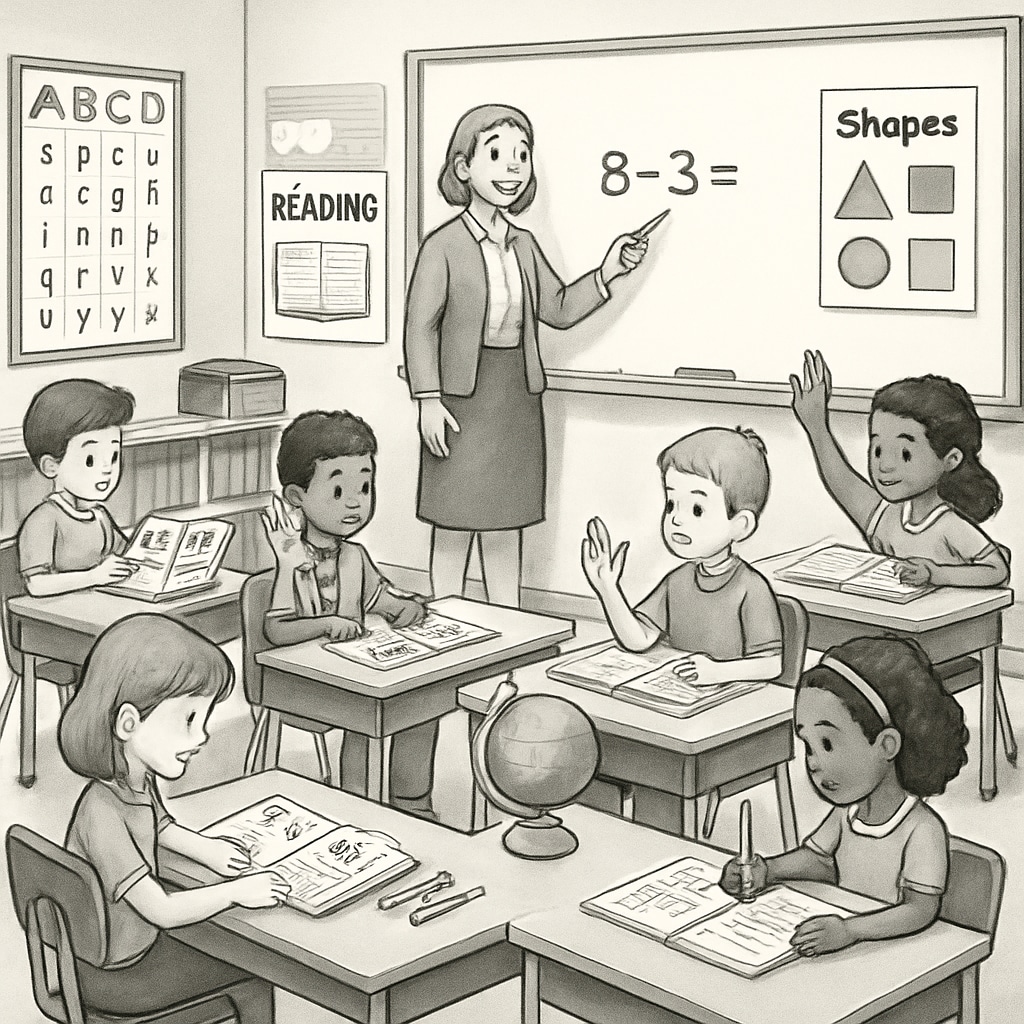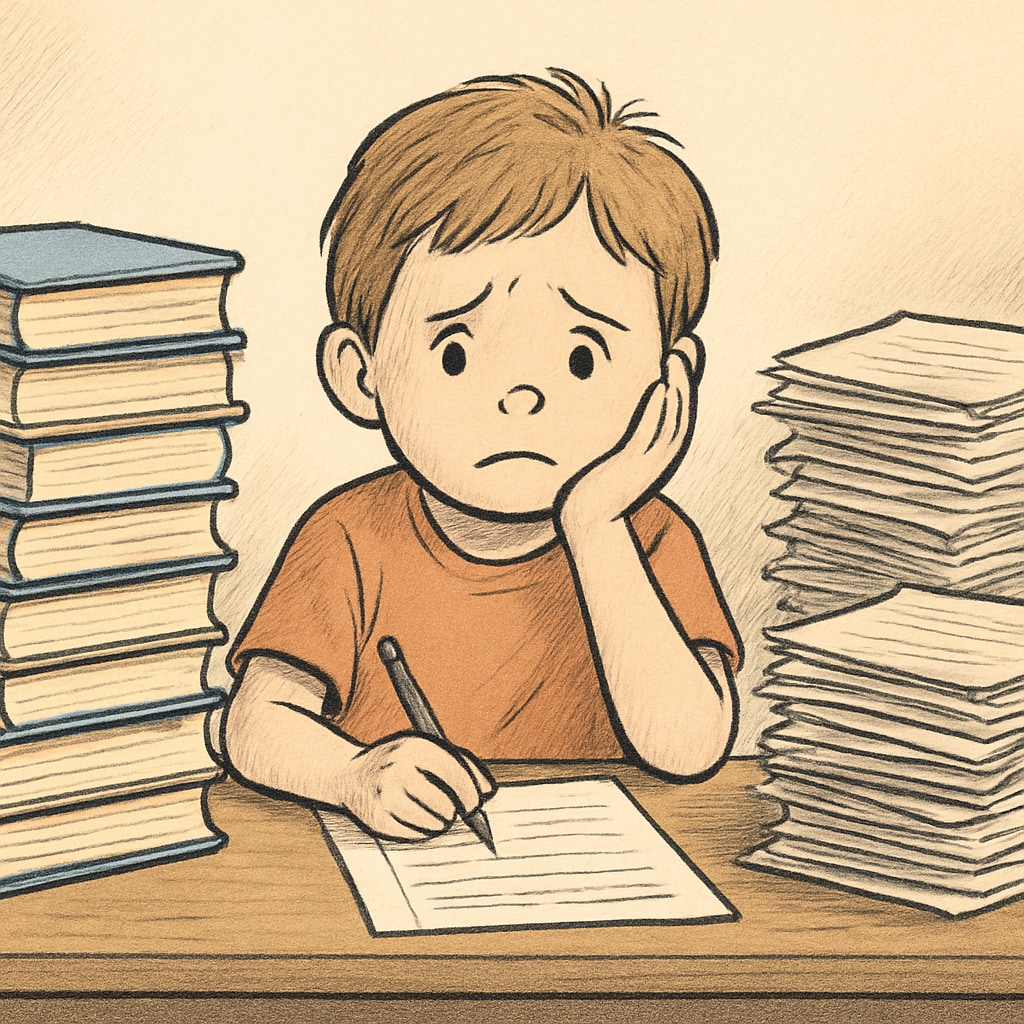In recent years, the pressure of college applications has reached unprecedented levels, extending its influence far beyond high school. Shockingly, even first-grade students are being indirectly exposed to this phenomenon. The intense focus on securing a successful academic future has led to a growing number of parents and schools pushing young children into early preparation. This alarming trend raises significant concerns about the challenges it poses to first-graders and the potential long-term consequences for their mental and emotional well-being.
The Growing Influence of College Applications on Early Childhood
The competitive nature of modern education has created a ripple effect that impacts children far younger than ever before. Parents, driven by the desire to give their kids a head start, are enrolling them in extracurricular activities, advanced learning programs, and even college-prep courses as early as elementary school. For example, some schools have begun implementing “academic tracking” systems that aim to identify potential high achievers at an early age. While these initiatives may seem beneficial on the surface, they often serve to increase stress and limit a child’s ability to explore their natural interests.

According to a comprehensive overview of education, early academic pressures can stifle creativity and hinder the holistic development of children. First-graders, who are at a critical stage of cognitive and emotional growth, may struggle to adapt to the demands of structured, high-pressure environments. This misalignment between developmental readiness and educational expectations can lead to burnout, reduced self-esteem, and even anxiety disorders.
Challenges Young Students Face
First-grade students are naturally curious, eager to learn, and full of energy. However, when exposed to the looming pressures of college applications, they encounter a range of challenges that can inhibit their growth:
- Loss of Play and Creativity: Over-scheduling children with academic tasks reduces their time for free play, which is essential for developing problem-solving skills and imagination.
- Increased Stress and Anxiety: Constant reminders about future academic milestones can create a sense of inadequacy and fear of failure.
- Parental Expectations: Many parents unintentionally place undue pressure on their children in the name of preparation, which can strain parent-child relationships.
- Reduced Focus on Social Skills: Academic rigors at an early age often come at the expense of social-emotional learning, leaving children ill-equipped to navigate interpersonal relationships.
These challenges point to a serious disconnect between the goals of modern education and the developmental needs of children. As noted by the field of child development, creating a balance between academic rigor and personal growth is vital for fostering well-rounded individuals.

Addressing the Problem: What Parents and Educators Can Do
To mitigate the harmful effects of early academic pressure, parents and educators must take proactive steps to prioritize the well-being of first-grade students. Here are some practical strategies:
- Encourage Play-Based Learning: Integrating play into the curriculum can help children develop critical thinking and social skills while reducing stress.
- Set Realistic Expectations: Parents should focus on their child’s individual growth rather than comparing them to others or fixating on long-term goals.
- Promote Emotional Resilience: Teaching coping mechanisms and fostering a growth mindset can prepare children to handle challenges without fear.
- Advocate for Balanced Education: Schools should emphasize holistic development, incorporating arts, physical education, and social-emotional learning alongside academics.
By adopting these approaches, both parents and educators can create an environment that nurtures a child’s natural curiosity and joy for learning, rather than overwhelming them with undue pressure. Ultimately, the goal should be to equip children with the tools they need to thrive—academically, socially, and emotionally.
Reevaluating the Purpose of Education
The ultimate objective of education should not be to prepare children for college at the expense of their childhood. Instead, it should focus on fostering lifelong learners who are confident, adaptable, and emotionally intelligent. As society continues to grapple with the pressures of college admissions, it is crucial to remember that success is not solely defined by academic achievements. The well-being of our children and their ability to lead balanced lives must take precedence.
In conclusion, the rising pressure of college applications on first-grade students highlights an urgent need for change. By reassessing our priorities and emphasizing the holistic development of children, we can ensure that education serves its true purpose: empowering the next generation to reach their full potential, free from unnecessary burdens.
Readability guidance: This article adheres to a clear structure with concise paragraphs and accessible language. Key points are summarized in bullet lists, and transitions between sections ensure smooth reading. The tone is professional yet empathetic, addressing parents and educators alike.


